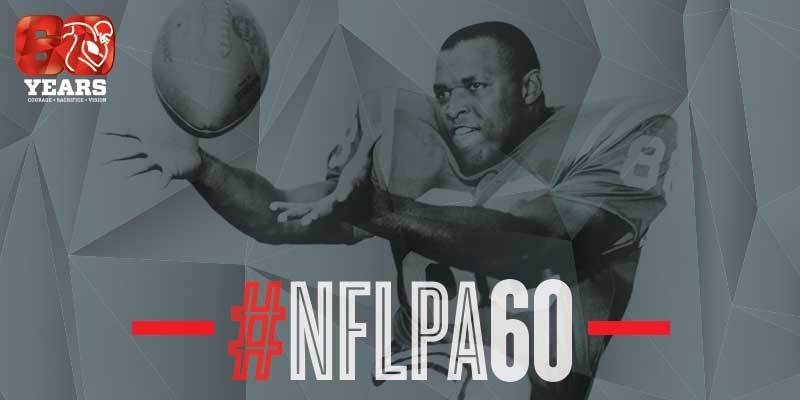NFLPA Honors 60 Heroes

Legend has long held that management refusing to provide clean socks and jocks was the reason the NFLPA was first formed in 1956. In commemoration of the 60th anniversary of the NFLPA, we are proud to recognize and honor 60 NFLPA Heroes. Beginning this month, we will acknowledge the contributions of the many players, employees and friends who, over the past 60 years, have had a significant impact on the history of this great organization. These individuals have exemplified courage, vision and sacrifice and dedicated themselves to the advancement of all NFL players, past present and future.
John Mackey was a second round choice of the Baltimore Colts in 1963 out of Syracuse University, and by the end of his NFL career in 1973, he became and was voted the best tight end in NFL history making five Pro Bowls in his ten year career. He was inducted to the Pro Football Hall of Fame in 1992, and many believe his induction was unduly delayed because of his activities on behalf of the NFLPA. He was first elected as a Player Rep for the Colts in 1969 and in early 1970, Mackey was elected the first President of the combined NFLPA in early 1970, serving just three years as NFLPA President, but he left an indelible mark on the NFLPA as a leader. He stood up to the owners in 1970, when they refused to recognize the new NFLPA unless and until the players would waive their right to negotiate preseason pay in perpetuity. Thanks largely to Mackey’s strong leadership, the owners eventually relented on this issue after a brief strike in late July of that year, and agreed to a new CBA that recognized the new NFLPA and provided for increases in preseason pay, pensions, and other benefits. Two years into the new CBA, the Player Reps decided to file a lawsuit against the owners to challenge the Rozelle Rule. As President, Mackey agreed to be the first plaintiff listed on the lawsuit, which also listed nearly all of the Player Reps as plaintiffs. Mackey retired as a player after the 1972 season, but he testified in the trial and helped the players win a resounding victory in December of 1975, when Federal District Court Judge Earl Larsen ruled that the Rozelle Rule violated the federal antitrust laws. That decision spurred negotiations for a new CBA in the months that followed, and the NFLPA finally reached a CBA settlement with the owners in March of 1977 after going almost three years without a new Agreement. In addition to the lawsuit, Mackey’s main contribution as President was to make the NFLPA a truly “professional” organization. In 1971, he moved the NFLPA’s headquarters to Washington, D.C., and convinced the NFLPA Executive Committee and Player Reps to hire Ed Garvey as the first Executive Director of the combined NFLPA the same year. Several years after his retirement, he was diagnosed with dementia, and became the inspiration for the “88 Plan” (88 was Mackey’s jersey number), a new benefit created in 2007 by NFL Commissioner Paul Tagliabue and NFLPA Executive Director Gene Upshaw that provided monetary benefits for former players with neurological disorders. Mackey passed away in 2011 but is remembered as a hero and pioneer for his efforts to establish the NFLPA.